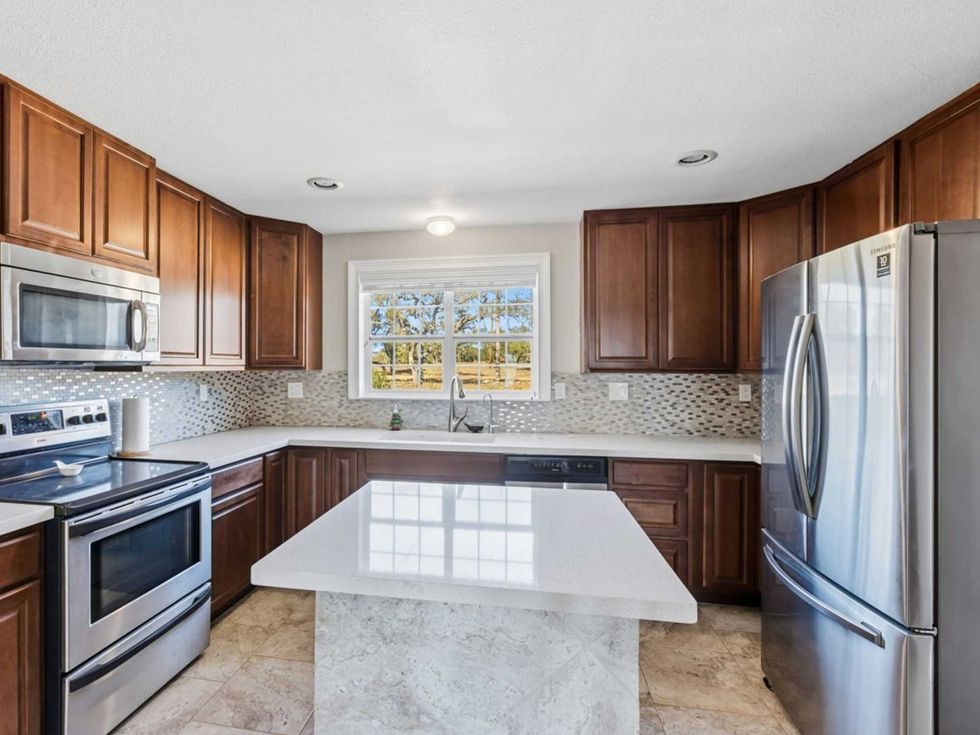Buyer Be Aware
Navigating a new home sale: A layman's guide to real estate contracts
 Signing on the dotted line? If you are considering new construction, we suggestasking the following questions.
Signing on the dotted line? If you are considering new construction, we suggestasking the following questions. New homes are sexy. But the paperwork differs from standard resale contracts.
New homes are sexy. But the paperwork differs from standard resale contracts. The realtor should be your advocate. Are they receiving bonuses that go aboveand beyond what's customary?Photo courtesy of Emergency Dentists USA
The realtor should be your advocate. Are they receiving bonuses that go aboveand beyond what's customary?Photo courtesy of Emergency Dentists USA What if you get cold feet? Know the consequences.
What if you get cold feet? Know the consequences.
You are buying a new home! Congratulations.
It's a big decision, one that is not to be taken lightly. Often, images of bodacious parties, the dream of an entertaining kitchen with granite tops and stainless commercial appliances, and a big whirlpool tub are enough to propel anyone to get out and home shop.
Building a home allows more customization opportunities. You get to pick your own colors, cabinets, flooring, carpet, location and floor plan, among hundreds of other decisions. It brings the artiste in most, but it can also feel overwhelming.
Buying or building a brand new home is different from a resale or established property. Whereas the paperwork used for the latter is governed by the Texas Real Estate Commission (TREC), new home contracts vary from builder to builder.
Familiarizing yourself with the legalities of the transaction is a shared responsibility. The builder's sales counselor should be knowledgeable and openly discuss its policies, though you cannot be shy about reading the contracts throughly.
Contracts can be tricky, especially when each builder has its own process, requirements and policies. As you shop around and prepare to sign on the dotted line, there are some questions you need to ask. Ready?
The cash: Earnest deposits versus option deposits and option period
An earnest deposit is one that is given as commitment to purchase the property. It is typically tied to obtaining a loan approval, and most builders will request that a loan application and pre-approval are submitted soon after signing the sales agreement. If you don't qualify at the beginning of the transaction, the builder will typically cancel the contract and refund any earnest deposits, though it may take two to three weeks to process.
Option deposits however, are different. They are collected for personalized upgrades (options) and are generally non-refundable regardless of the circumstances. So, if for some reason, you do not follow through with the transaction, you are at risk of forfeiting these monies. Unfair? Think about the builder's cash commitment to build a home of your specifications. They have skin in the game, and they want you to as well.
Larger cash deposits can also be used as negotiation tactics as well. You want a bigger discount? Write a bigger check. It means a smaller construction loan for them, saving money, and having a definite commitment from the buyer.
Policies range on what's soft money and what's a hard deposit. Ask questions and do not assume you understand. Though standard real estate resale contracts may have an option period — a time during which you could walk away from a deal for no reason — new home contracts vary.
Contingencies: Dealing with your old pad
A contingency clause is one that allows new home buyers some additional flexibility when purchasing a new home with the requirement of being able to sell their old home. The clause will sometimes lessen the financial burden on the buyer, though it may increase as construction progresses.
At some point, buyers will have to make a decision: Whether to buy the home without a contract on their old home, or let go of the new home all together. Deposit policies differ, so be clear on the scenarios before committing.
Some builders will request the home be listed immediately with a reputable realtor and require a comparative market analysis be done and reviewed. There are even a few brokers offering a home buyout program, which guarantees the sale of the old home prior to the new one being completed, or as the program implies, the broker purchases the home for cash. Check on this availability, though these programs require that the broker list the current home and be on the new home contract.
Getting a good deal: Incentives and Affiliated Business Arrangements
Builders will allure you and attempt to earn your business with appetizing packages, discounts and upgrades. It's still a war zone out there, so don't be afraid to ask for these special deals. Sales personnel are usually armed with a "bucket" of cash which they can use to customize a package for each buyer. Nothing is set in stone and everything is negotiable, to an extent.
But more often than not, these incentives and offers are tied to using one or all of the builder's affiliate companies which includes a preferred lender and a title company. If the builder has an affiliated business arrangement with a lender and title company, that means part of the overall company profits (not per transaction) are shared. They are more likely to free up more cash if you agree to work with them.
It's not a bad thing, just make sure the overall deal works for you, and be clear on possible repercussions you may incur in case you deviate from the original plan. Will you lose some or all of the incentives?
Someone screwed up: Default Language
You should be confident on the home before signing the sales agreement. Butterflies and nervousness is normal, often associated with anxiety over making one of the largest emotional and financial decisions of your life. Buyer's remorse is also common. So arm yourself with plenty of logic before signing on the dotted line.
But what if you cannot fulfill your commitment? A contract is legally binding and you should know what happens in the event that you have to say "sorry, I can't go through with this." There is usually language describing consequences in case you screw up, or the builder does.
What if you are a pain the ass and refuse to work within the time parameters the builder requires? Some builder contracts have a clause that can cancel your contract at any time for any reason, enforced if the buyer becomes a liability. Read the fine print.
More money: Realtor Bonuses
If you decide to use a realtor as a part of the transaction, which in new construction you are not required to, their name and signature is required on the paperwork. They are officially the realtor on record, and their name cannot be removed or altered post-contract.
At times, builders give away realtor bonuses, known as BTSAs (bonus to selling agent). This must be disclosed on the original paperwork and will show up on the closing statement at the title company. Appropriate bonuses are normal, rewarding realtors for repeat business and bringing good clients to the table after hitting the pavement, day after day. However, beware of inflated figures (sometimes in the $10,000 to $20,000 range) that may led to legitimate questions on whether your representative, who should have a fiduciary responsibility to the buyer, truly has your best interests in mind.
Some realtors will disclose the amount to the buyer directly, often offering the amount as a contribution.





